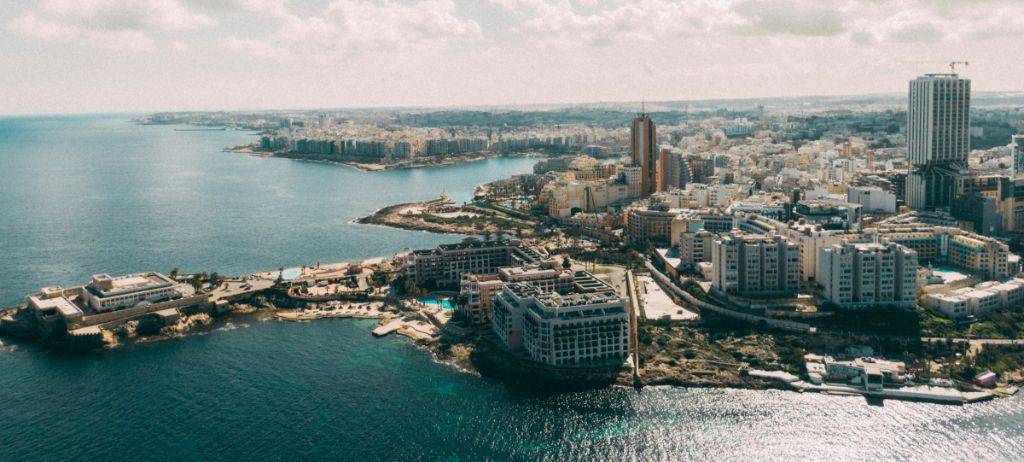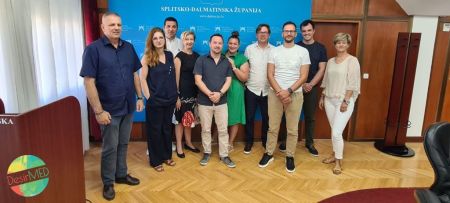The Mediterranean region has experienced an alarming 109% increase in land take due to rapid coastal urbanisation since 1975. The upcoming MedOpen training course, scheduled from 15 – 29 October 2024, will address this pressing challenge by providing GIS training to experts from national institutions of the Contracting Parties to the Barcelona Convention. Supported by the GEF-UNEP MedProgramme, the course forms a crucial element of Child Project 2.1, "Mediterranean Coastal Zones: Water Security, Climate Resilience, and Habitat Protection".
Since its inception in 2004, the MedOpen training course on coastal management in the Mediterranean has evolved into a flagship Integrated Coastal Zone Management (ICZM) programme for sharing ideas, know-how, and strategies for implementing the ICZM Protocol at the local, national, and regional levels. As new challenges have emerged, MedOpen has been updated with a capacity-building series on Climate Variability and Change (CV&C), Marine Spatial Planning (MSP), and most recently, the Candidate Common Indicator (CCI) 25 on land cover change – a component of the IMAP Info system. Standing for the Integrated Monitoring and Assessment Programme of the Mediterranean Sea and Coast and Related Assessment Criteria, the IMAP system supports the 21 Mediterranean countries to consistently monitor various parameters across the region, including water quality, biodiversity, pollution levels, and habitat degradation. This analysis plays a crucial role in fostering sustainable development and environmental protection in the Mediterranean region by providing essential information and tools for informed decision-making and collaborative action.
Preserving open coastal areas as a priority
Measuring land cover change advances the IMAP Ecological Objective 8 (EO8) which concentrates on the terrestrial part of the coastal areas where human activities continuously alter coastal ecosystems and landscapes. The low-elevation coastal zone (up to 5 meters above sea level), covering a significant portion of the Mediterranean coastline, is at particular risk since this area is prone to coastal flooding. Climate change further exacerbates this risk, especially rising sea levels.
Leveraging Candidate Common Indicator 25 facilitates balanced allocation of land use, protection of open coastal areas, securing setback zones, preventing urban sprawl, and limiting the linear extension of development and transport infrastructure along the coast to preserve ecosystem health. However, given that this indicator is still undergoing testing, the Priority Actions Programme/Regional Activity Centre (PAP/RAC) is organising the online MedOpen training course to enable GIS experts from national and regional institutions to calculate the indicator using a standardised methodology across the Mediterranean.
MedOpen course on CCI 25 – highlights and key information
The key objectives of the course, scheduled from 15 – 29 October 2024, include:
- Understanding the significance of CCI 25 calculation;
- Presenting and discussing the process of calculating the indicator;
- Exploring results - visualisation, quality control, and validation;
- Discussing the potential implications of results for coastal planning and management;
- Facilitating knowledge sharing from experiences across the Mediterranean region.
The hybrid training programme offers a blend of learning practices, featuring eight online sessions on the MedOpen virtual platform for self-paced learning and three interactive half-day training sessions for live discussions on land cover change calculations. Participants completing the course will have the opportunity to undertake several tests and earn the MedOpen diploma.
A detailed agenda for the MedOpen course on CCI 25, which will be conducted in both English and French, is available here
.
For inquiries and additional information about the training, please get in touch by emailing veronique.evers@paprac.org
About the project:
The Mediterranean Sea Programme (MedProgramme), funded by the Global Environment Facility (GEF) and launched in 2020, is dedicated to “Enhancing Environmental Security” across ten countries: Albania, Algeria, Bosnia and Herzegovina, Egypt, Lebanon, Libya, Montenegro, Morocco, Tunisia, and Turkey. Led by the UNEP/Mediterranean Action Plan (MAP) with support from UNEP and the European Bank for Reconstruction and Development (EBRD), the MedProgramme aims to alleviate major transboundary environmental stresses in coastal regions while bolstering climate resilience, ensuring water security, and enhancing the well-being of coastal communities. It comprises eight Child Projects designed to deliver complementary outcomes, aligned with the priorities identified in the Transboundary Diagnostic Analysis (TDA) for the Mediterranean Sea. The MedOpen training course is an integral component of Child Project 2.1 titled “Mediterranean Coastal Zones: Water Security, Climate Resilience and Habitat Protection”, executed by PAP/RAC.


